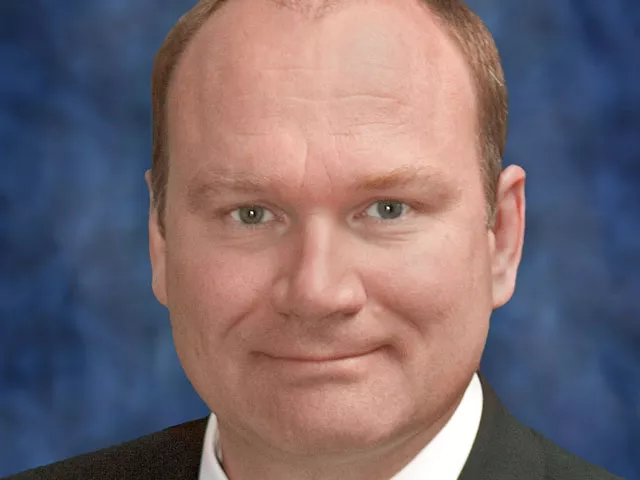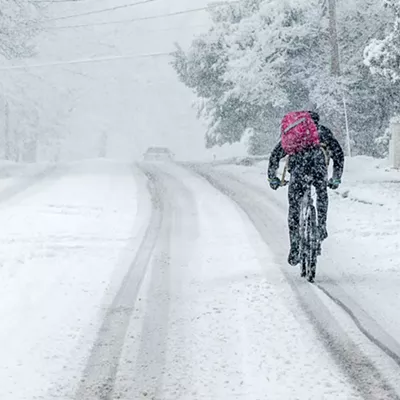“A TOTAL RE-ORG”
Facing budget cuts and fewer bodies, the Spokane County Sheriff’s Offi ce is undergoing a wholesale restructuring this year, resulting in what Sheriff Ozzie Knezovich calls “a dynamic shift in the way we’ve done business in the past.”
Most “traumatic,” says Knezovich, is the total reorganization of the investigative unit by combining into one body the Property Crimes Task Force and the Investigative Support Unit, more commonly known as the drug unit.
Knezovich says the patrol deputies will help pick up the resulting slack in investigations, but the offi ce will be limited in its ability to chase the same number of criminals it had previously.
“We’ll be focusing very heavily on career criminals,” he says. As for petty criminals, “we’ll be chasing them, but it’ll only be when they rise to a certain level.”
Because of a tight county budget this year, the Sheriff’s Office had $3 million sliced from its law enforcement resources. Knezovich says this cost him 19 positions — including two lieutenants, one sergeant, five detective corporals and four deputies — and forced the “total re-org of the agency.” And Sgt. Dave Reagan, who acted as the office’s main spokesman, has been put on patrol duty. Knezovich anticipates more losses and restructuring next year when the county expects to tighten its budget even further.
“We’re going to have to pick and choose the crimes we’re going to be investigating,” Knezovich says. “But our biggest concern is what we’re going to do Jan. 1, 2011.” (ND)
TMDL-LICIOUS
Last week, the state Department of Ecology took one more step toward cleaning up the Spokane River by submitting a cleanup plan 12 years in the making to the Environmental Protection Agency. Officially called the Spokane River/Lake Spokane Dissolved Oxygen Water Quality Improvement Plan (referred to as the TMDL report on the street), the plan would bring our local bodies of water into compliance with allowable dissolved oxygen levels. When all is said and done, it calls for reduction of municipal and industrial phosphorous pollution — which leads to dissolved oxygen — by more than 90 percent. The EPA has 30 days to review the plan. (ND)
NUCLEAR PARTY
From Boise to Eugene, Ore., a series of public meetings on the Hanford cleanup are spanning the Pacifi c Northwest this month. Comments are sought for the Tank Farm Closure & Waste Management Environmental Impact Statement. According to the watchdog group, Hanford Challenge, the plan allows for the disposal of radioactive waste from across the country beginning in 2022 and the storage of 1 million gallons of high-level radioactive waste at the site. Spokane’s meeting is 6 pm on Wednesday, Feb. 23, at the Red Lion, 303 W. North Drive. (ND)
UPSETTING TUITION TRADITION
Two weeks ago, student protesters roused themselves at local public universities to decry tuition prices and state budget cuts. Their ire was directed at Olympia. After all, at Washington public universities, it’s the state, not the individual university, that sets public tuitions.
But a bill in Olympia has just passed the state Senate giving three state universities — Washington State, Western Washington and University of Washington — the power to set their own tuition (though they’re limited to a 14 percent yearly increase).
Notice anybody missing from that list? That’s right, Eastern Washington University.
Part of the reason for the omission, bill sponsor Derek Kilmer (D-Gig Harbor) explains, is that EWU didn’t ask to be involved. The change is a six-year experiment, and the big agitators for the bill were the three included in that experiment.
Dave Meany, spokesman for Eastern Washington University, says that having the power to set tuition wouldn’t solve Eastern’s major financial problems. Many Eastern students need more fi nancial aid, not higher tuition. (DW)
























